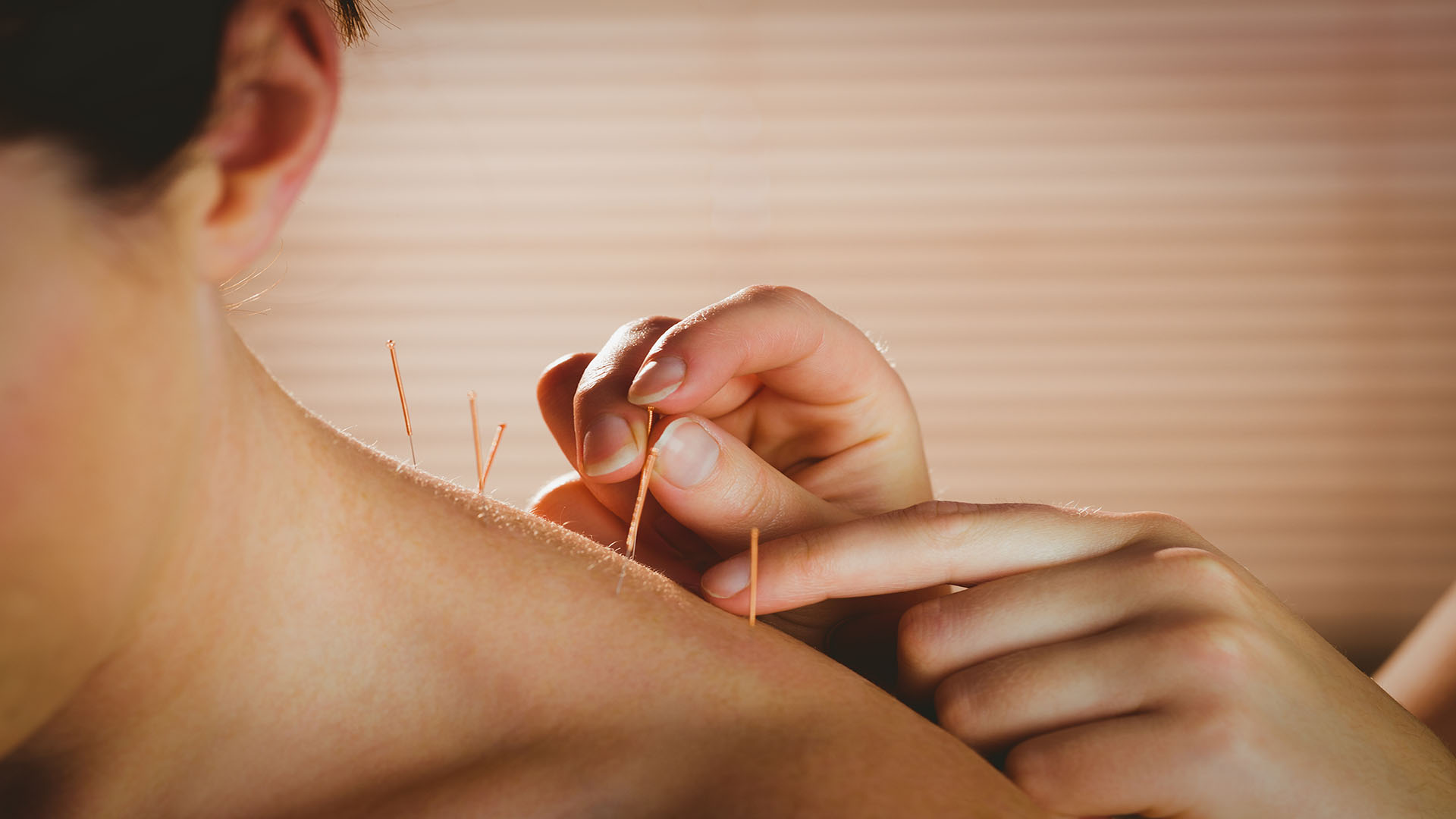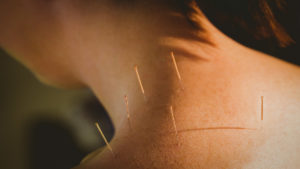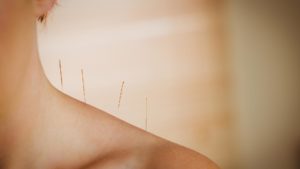Introduction
Acupuncture is a viable treatment option for those suffering from acute or chronic pain, muscle strains and sprains, sports injuries, neuropsychological conditions such as anxiety, depression, stress, insomnia, ADHD, fibromyalgia and more. There are many advantages from natural therapies such as acupuncture and other mind-body modalities such as meditation, tai chi, qigong and yoga. Each of these modalities blend very well together as part of a holistic and synergistic method of pain management, prevention of illness and injury, and optimizing our performance. Let’s look at some of the benefits of acupuncture to determine if you should try this form of therapy.
How does acupuncture work?
Acupuncture is more than a treatment modality; it offers an entirely different worldview in its approach to pain, illness, and wellness. By stimulating specific points in the body various modalities and techniques, acupuncture can alleviate pain and restore dysfunction. A practitioner will stimulate specific points in the body that are associated with correcting and harmonizing imbalance within that body system, such as regulating the heart meridian for an individual suffering from anxiety.
Each treatment is unique to the patient, their condition, and their presenting signs and symptoms on the day of treatment. A typical treatment will often consist of stimulating around five to ten, and sometimes upwards of twenty, acupuncture points in order to achieve the desired effect. Most commonly, acupuncture is performed with hair-thin, filiform (non-syringe style) needles that are placed at precise locations along the body. They are typically inserted to around 2-3 millimeters (less than ¼ inch) and are retained for ten to thirty minutes while the individual receiving treatment rests and enters into a deep state of relaxation. With this technique, practitioners aim to balance and regulate the flow of energy within an individual in order to restore function and harmony.
This flow of energy is called qi within acupuncture and Eastern medicine, but is also referred to as prana in the yogic tradition, pneuma within the Greek tradition, and the vital life force within the western European/American traditions. Qi flows within the body-mind complex through a series of fourteen primary meridians that contain more than 361 acupuncture points located along the entire body. From the Eastern perspective, when an individual’s qi is out of balance, it can lead to pain, illness, psychological distress, sleep problems, and more.
A skilled practitioner is one who is able to assess and accurately diagnose which of these meridian systems is/are out of alignment and correct them utilizing a combination of various acupuncture points and supportive adjunct therapies. Supportive therapies may include acupressure, shiatsu, massage, cupping, guasha/graston/scraping, moxibustion, therapeutic exercise, manual therapy and myofascial release, and laser therapy.
How does acupuncture relieve pain?
Acupuncture can relieve pain by promoting muscle relaxation, increasing circulation, reducing inflammation, and stimulating the production of internal pain-relieving compounds such as endorphins. An exhaustive explanation of the various mechanisms by which acupuncture alleviates pain is beyond the scope of this article. Indeed, the scientific study of acupuncture has elucidated more information in regards to how pain is perceived and regulated in humans than any other such topic. Overall, acupuncture activates the body’s natural self-healing and self-regulating abilities thereby relieving pain and restoring proper function. This is primarily mediated through the nervous system and the myofascial and musculoskeletal systems.
Studies have found acupuncture to be beneficial in helping with lower back pain, neck pain, osteoarthritis, knee pain, headaches, and migraines. Additionally, acupuncture can help with other issues, according to the WHO (World Health Organization), with proven results. These conditions include blood pressure issues, nausea, gastric issues, menstrual pain, digestive disturbances, anxiety, depression, sprains, arthritis, and much more.
In Asia, acupuncture has been used for thousands of years to reduce pain and treat a variety of conditions. Current research supports that what has been described as the flow of qi within meridians of the body corresponds to many biological systems including nerve transmission, connective tissue planes, metabolic components carried in the blood such as oxygen, hormones, neurotransmitters, and nutrients, as well as the functional energy of an organ system, depending on the context in which it is used. All of these components, which are valuable to health, have been shown to be regulated and improved by acupuncture. Acupuncture, in essence, appears to encourage the body to return to a balanced and harmonized functional state.
While many traditional western practitioners have a hard time understanding new concepts such as qi and meridians, the therapeutic benefits of acupuncture are undeniable. This is further evidenced by the recent acceptance of low back pain treatment with acupuncture by Medicare within the United States. Many believe that the treatments can alter hormone levels and the immune system. Additionally, acupuncture p0int stimulation can affect the nervous system, which stimulates the release of chemical substances that increase blood flow and oxygen in the tissues as well the release of various neuropeptides and neurotransmitters such as endorphins, serotonin, dopamine, oxytocin, and enkephalins. In turn, this helps to reduce metabolic waste products, reduce pain and inflammation, improve healing and restore function.
How does acupuncture help other medical issues?
Acupuncture helps with other medical issues in similar ways that it helps with pain, by increasing the body’s ability to self-regulate and achieve balance. While the idea of chi or (qi) can seem like an abstract concept, it is helpful to understand that qi is defined in relation to a particular function and its relative health. For example, the ability of the human body to circulate blood through the body is seen as a movement of qi. It can improve the mental and physical aspects to improve all forms of health by connecting the connections between physical and mental.
While acupuncture in the western world focuses mostly on pain, it can help with many medical issues by improving the body’s natural function. Think of acupuncture as a complementary or adjunctive therapy to other forms of treatment. It’s thought that acupuncture helps other areas along with pain as every nerve in the body connects to other parts of the body and brain.
When do doctors recommend acupuncture?
Western practitioners view acupuncture points as a way to stimulate the nervous system, muscles, and connective tissue/fascia, all of which are believed to stimulate natural pain relief and improve function and range of motion. For this reason, doctors recommend acupuncture when patients are feeling discomfort and pain, especially when traditional methods are not available or effective as a safe alternative to medications. Further, the American College of Physicians has even recommended acupuncture as a first line of therapy for those suffering from low back pain, even before medications such as ibuprofen, due to its low risk of side effects.
Can acupuncture work for anyone?
Acupuncture is a safe and effective holistic treatment modality that alleviates most pain conditions and can assist in the treatment of many internal medicine diseases. With that said, it is not for everyone. If you are concerned with the usage of needles there are many other non-needle-based therapies that can assist in your recovery. Additionally, the needles that are used are 0.16 millimeters, which is smaller than the size of a hair and much smaller than a regular needle used for shots. The only way to find out if acupuncture will work for you is to try the treatment. Consult with your doctor and acupuncturist to determine if the treatment will work for your needs.
Like with all treatments, acupuncture has limitations. Along with other forms of treatment, acupuncture can help as a complementary treatment. Furthermore, acupuncture may help with some areas for some people but not for others. If you go in for treatment for pain, you may not find relief but may experience more energy or even an improved mental state.
How long do the benefits of acupuncture last?
The benefits of acupuncture last different amounts of time for each patient, depending on the condition and level of discomfort. Also, if patients combine conventional treatment with acupuncture, then the holistic approach may help to work with longer-lasting benefits. As everyone is different, some will feel relief with the same day as treatment, while others may not.
Keep in mind, even without relief, patients can still experience positive changes such as sleep patterns, digestion patterns, appetite, emotions, and more. If you notice any positive changes, then it’s likely that acupuncture will help you with complicated symptoms and pain as well as consistent treatment.
Some patients only experience reduced symptoms, which can be a relief in itself. For the best outcome, it’s best to continue treatments at regular intervals following a prescribed treatment plan. Many factors can determine the level of relief as well as the length of relief. From duration to the severity of symptoms along with diet and exercise can change the benefits of acupuncture. Even age and physical condition can affect the long-term benefits of the treatment.
After a few treatments, your acupuncturist will be able to help determine how many treatments you need and how long the benefits will last. For the most part, you should consider long-term treatments to experience long-term relief. With time you should be able to cut down the number of treatments to maintain relief. There are three different stages of recovery and they include relief care, corrective care, and maintenance care. Relief care is just that, relief from the immediacy of symptoms. Corrective care comes in when the intensity of presenting symptoms has reduced and restorative and root treatments can be implemented to get you back on track to a better functional state. Maintenance care is then implemented to perform “tune-ups” in order to keep you in your optimal state of health.
How long does it take for acupuncture to work?
For some people, the positive acupuncture’s beneficial benefits might last for a long time. Relief may be lasting, results may be immediate but require repeated sessions to maintain, or effects may come over time. The length of the effects is affected by the health issue being treated, your overall health, and the measures you take to care for yourself after treatment. If you’re in a lot of pain, recovering from an injury, or dealing with a chronic illness, you may require additional sessions to get long-term effects. Acute problems may require one to three treatments to see results, however chronic health concerns may require six or more sessions.
How long do the benefits of acupuncture last?
During an acute injury, acupuncture is only effective for pain relief for 12-36 hours. It takes about 4-6 treatments for you to notice longer-lasting medicinal effects. Your acupuncturist will recommend the best treatment option for you. The longer you maintain treatments, the longer the benefits will affect your body.
Why Choose Portland Wellness Care for Acupuncture Treatment?
Acupuncture helps the body release natural painkillers, which give treatment for patients suffering from various ailments. Our team of acupuncturists at Portland Wellness Care work collaboratively to give you the best possible treatment outcomes. We are experts and specialists in injuries and rehabilitation with services including chiropractic care, physiotherapy, sports medicine, therapeutic massage, laser therapy, diagnostic ultrasound, and much more. Make an appointment with Portland Wellness Care now to see if acupuncture is the right treatment for you.
Conclusion
Acupuncture activates the body’s natural healing and self-regulating abilities to reduce pain and restore function. Speak with your doctor or call Portland Wellness Care and schedule an appointment today to enjoy your optimal state of health and vitality.






